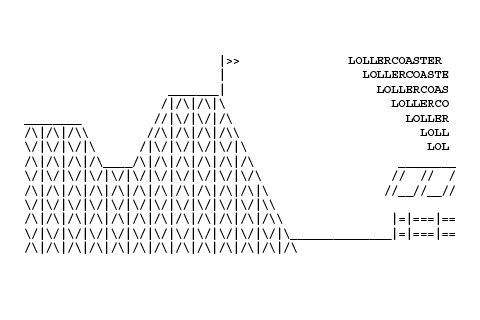So can we put this topic to bed now?
Replies
-
Why does everyone who posts these articles believe that correlation equals causation?

Now I'm going to bed.
hey now... is that directed at me?? :laugh:
Not at all... I just wanted to work those murderous sugar doughnuts into the thread.
Im still waiting for Lish or Mirey to send me Timbits.
Or your wife to send me some of thay failed cupcake thing0 -
Why does everyone who posts these articles believe that correlation equals causation?

Now I'm going to bed.
hey now... is that directed at me?? :laugh:
Not at all... I just wanted to work those murderous sugar doughnuts into the thread.
Great. Now I want donuts and I'm gonna die. Because something like science. Thanks a lot. :grumble:0 -
Umm, wut? They stated the author, the journal and the date of publication. But if that's not enough for you, here is the link:Uh no. Because there was no reference to the primary research. And a quick search of PubMed netted me zilch.
https://archinte.jamanetwork.com/article.aspx?articleid=1819573
Thanks for the link. A search for the author's name at JAMA IM doesn't actually turn up anything, and it's not in the table of contents for the latest issue online. Interesting.
Anyway I don't have a login and that journal isn't available through my library. I'd like to see what factors they used as adjustments.0 -
I don't see how it matters. Cigarettes have a warning label on the box that says they'll kill you, people still smoke. Illegal drugs kill people everyday from overdose, but it doesn't stop someone else from overdosing the next day. This is sugar. People are not going to stop eating sugar because excess causes obesity or somebody has a hypothesis that it makes us "sick."
The horse is dead. Stop beating it and have a modest slice of cake. It won't kill you. 0
0 -
From the JAMA article:Why does everyone who posts these articles believe that correlation equals causation?
So either: (1) sugar is a causal factor, or (2) cardio-vascular disease causes sugar consumption, or (3) there is some factor not included in the above that causes both.After additional adjustment for sociodemographic, behavioral, and clinical characteristics, HRs were 1.00 (reference), 1.07 (1.02-1.12), 1.18 (1.06-1.31), 1.38 (1.11-1.70), and 2.03 (1.26-3.27; P = .004), respectively.
Which do you think is most likely?0 -
But, but, but! Bananas and peaches and pears...
And that's not to mention the cookies, cakes, and the nectar of the gods... Dr Pepper.0 -
From the JAMA article:Why does everyone who posts these articles believe that correlation equals causation?
So either: (1) sugar is a causal factor, or (2) cardio-vascular disease causes sugar consumption, or (3) there is some factor not included in the above that causes both.After additional adjustment for sociodemographic, behavioral, and clinical characteristics, HRs were 1.00 (reference), 1.07 (1.02-1.12), 1.18 (1.06-1.31), 1.38 (1.11-1.70), and 2.03 (1.26-3.27; P = .004), respectively.
Which do you think is most likely?
Probably 3. They attempted to adjust the results for a few things, but not a whole lot really. The content of the remainder of the diet and body composition are two big ones.0 -
From the JAMA article:Why does everyone who posts these articles believe that correlation equals causation?
So either: (1) sugar is a causal factor, or (2) cardio-vascular disease causes sugar consumption, or (3) there is some factor not included in the above that causes both.After additional adjustment for sociodemographic, behavioral, and clinical characteristics, HRs were 1.00 (reference), 1.07 (1.02-1.12), 1.18 (1.06-1.31), 1.38 (1.11-1.70), and 2.03 (1.26-3.27; P = .004), respectively.
Which do you think is most likely?
(4) We're going to eat it anyway.0 -

Anyone wanna tuck me in?0 -
I don't see how it matters. Cigarettes have a warning label on the box that says they'll kill you, people still smoke. Illegal drugs kill people everyday from overdose, but it doesn't stop someone else from overdosing the next day. This is sugar. People are not going to stop eating sugar because excess causes obesity or somebody has a hypothesis that it makes us "sick."
The horse is dead. Stop beating it and have a modest slice of cake. It won't kill you.
I'm in for the cake :flowerforyou:0 -
I don't see what other factors were controlled for in the study. Can you elaborate?
From the JAMA article:Why does everyone who posts these articles believe that correlation equals causation?
So either: (1) sugar is a causal factor, or (2) cardio-vascular disease causes sugar consumption, or (3) there is some factor not included in the above that causes both.After additional adjustment for sociodemographic, behavioral, and clinical characteristics, HRs were 1.00 (reference), 1.07 (1.02-1.12), 1.18 (1.06-1.31), 1.38 (1.11-1.70), and 2.03 (1.26-3.27; P = .004), respectively.
Which do you think is most likely?0 -
From the JAMA article:Why does everyone who posts these articles believe that correlation equals causation?
So either: (1) sugar is a causal factor, or (2) cardio-vascular disease causes sugar consumption, or (3) there is some factor not included in the above that causes both.After additional adjustment for sociodemographic, behavioral, and clinical characteristics, HRs were 1.00 (reference), 1.07 (1.02-1.12), 1.18 (1.06-1.31), 1.38 (1.11-1.70), and 2.03 (1.26-3.27; P = .004), respectively.
Which do you think is most likely?
Probably 3. They attempted to adjust the results for a few things, but not a whole lot really. The content of the remainder of the diet and body composition are two big ones.
WTH were you when we sent up the jonnythan signal
in a different thread earlier today??0 -
From the JAMA article:Why does everyone who posts these articles believe that correlation equals causation?
So either: (1) sugar is a causal factor, or (2) cardio-vascular disease causes sugar consumption, or (3) there is some factor not included in the above that causes both.After additional adjustment for sociodemographic, behavioral, and clinical characteristics, HRs were 1.00 (reference), 1.07 (1.02-1.12), 1.18 (1.06-1.31), 1.38 (1.11-1.70), and 2.03 (1.26-3.27; P = .004), respectively.
Which do you think is most likely?
See bolded above. What were the original adjustments/factors?0 -
IN..because I'd like to go to bed.0
-
in, because......well, im just in.0
-
IN..because I'd like to go to bed.
Sadly that won't happen in this topic.
Because HYPOTHESIS. :laugh:0 -
People on the internet are irritating as ****.0
-
Umm, wut? They stated the author, the journal and the date of publication. But if that's not enough for you, here is the link:Uh no. Because there was no reference to the primary research. And a quick search of PubMed netted me zilch.
https://archinte.jamanetwork.com/article.aspx?articleid=1819573
Thanks for the link. Do you have access to the full study?
It is similar in nature to the recent Epic-Interact study on sugar sweetened beverages and the link to diabetes irrespective of body fatness, It's certainly an interesting line of research but the jury is still out from what I can gather.
I'm not sure how anyone would go about constructing a "causation" study on sugar intake especially if it leads to adverse health consequences ("yeah, I have this great idea. I need some human subjects and if I am right they will get really sick on my study. How cool is that? Can I have some funding please? What do you mean, rats?") but if the statistically correlation is strong enough then you can draw reliable conclusions from it according to my understanding.
I'm keeping an open mind at this stage.0 -
Why don't we do our own MFP poll and ask who feels that sugar is making them ill? Based on actual facts, tummy aches, bad skin, headache, insulin sensitivity, mood swings etc.
I'm not saying you only eat the white stuff with a spoon to prove it's not food combinations but I know from personal exclusion testing that added sugar gives me all of the above yet I crave it like my life depends on it.
My life has enhanced in all ways since eliminating sugar from my normal eating regime (I'm not on a diet) I only have the occasional wobble now instead of week long binges and have lost a decent amount of weight so far.
Edited for type-os0 -
Improve sugar by feeding to yeast in water. Then drink!!! Such fun0
-
Improve sugar by feeding to yeast in water. Then drink!!! Such fun
+1 :drinker:0 -
From the JAMA article:Why does everyone who posts these articles believe that correlation equals causation?
So either: (1) sugar is a causal factor, or (2) cardio-vascular disease causes sugar consumption, or (3) there is some factor not included in the above that causes both.After additional adjustment for sociodemographic, behavioral, and clinical characteristics, HRs were 1.00 (reference), 1.07 (1.02-1.12), 1.18 (1.06-1.31), 1.38 (1.11-1.70), and 2.03 (1.26-3.27; P = .004), respectively.
Which do you think is most likely?
Probably 3. They attempted to adjust the results for a few things, but not a whole lot really. The content of the remainder of the diet and body composition are two big ones.
WTH were you when we sent up the jonnythan signal
in a different thread earlier today??
Probably in the MRI machine.0 -
Modus omnibus in rebus, soror, optimum est habitu;
Nimia omnia nimium exhibent negotium hominibus ex se.
In everything the middle course is best: all things in excess bring trouble to men.
~Plautus, Pænulus, I. 2. 29.
Good advice for 200BC, still good advice...
There has been a buttload of research supporting that statement too.0 -
see Horizon: sugar vs Fat0
-
MFP poll
actual facts 0
0 -
"Robert Lustig is a pediatric endocrinologist at the University of California, San Francisco" so the OP refers to something coming from a member of his backing band ? No bias there then, clearly.0
-
But, but, but! Bananas and peaches and pears...
And that's not to mention the cookies, cakes, and the nectar of the gods... Dr Pepper.
MMMMM Dr Pepper MMMMMM0 -
Why don't we do our own MFP poll and ask who feels that sugar is making them ill? Based on actual facts, tummy aches, bad skin, headache, insulin sensitivity, mood swings etc.
I'm not saying you only eat the white stuff with a spoon to prove it's not food combinations but I know from personal exclusion testing that added sugar gives me all of the above yet I crave it like my life depends on it.
My life has enhanced in all ways since eliminating sugar from my normal eating regime (I'm not on a diet) I only have the occasional wobble now instead of week long binges and have lost a decent amount of weight so far.
Edited for type-os
My experience with added sugar is that I don't get any of the symptoms/diseases you described. Must be safe to eat then. 0
0 -
But, but, but! Bananas and peaches and pears...
And that's not to mention the cookies, cakes, and the nectar of the gods... Dr Pepper.
That's pretty much how I describe Dr. Pepper too.
Anyway, in to learn more about sugar. These debates are always interesting reads.0 -
You would need a control group and one that doesn't consume any added sugar but consumes everything else.......of course that would be impossible considering most of the added sugar will actually be in food. Therefore this study is considered null and void and who cares how much sugar someone eats.......we're going to diet anyway, right.
Umm, wut? They stated the author, the journal and the date of publication. But if that's not enough for you, here is the link:Uh no. Because there was no reference to the primary research. And a quick search of PubMed netted me zilch.
https://archinte.jamanetwork.com/article.aspx?articleid=1819573
Thanks for the link. Do you have access to the full study?
It is similar in nature to the recent Epic-Interact study on sugar sweetened beverages and the link to diabetes irrespective of body fatness, It's certainly an interesting line of research but the jury is still out from what I can gather.
I'm not sure how anyone would go about constructing a "causation" study on sugar intake especially if it leads to adverse health consequences ("yeah, I have this great idea. I need some human subjects and if I am right they will get really sick on my study. How cool is that? Can I have some funding please? What do you mean, rats?") but if the statistically correlation is strong enough then you can draw reliable conclusions from it according to my understanding.
I'm keeping an open mind at this stage. 0
0
This discussion has been closed.
Categories
- All Categories
- 1.4M Health, Wellness and Goals
- 398.2K Introduce Yourself
- 44.7K Getting Started
- 261K Health and Weight Loss
- 176.4K Food and Nutrition
- 47.7K Recipes
- 233K Fitness and Exercise
- 462 Sleep, Mindfulness and Overall Wellness
- 6.5K Goal: Maintaining Weight
- 8.7K Goal: Gaining Weight and Body Building
- 153.5K Motivation and Support
- 8.4K Challenges
- 1.4K Debate Club
- 96.5K Chit-Chat
- 2.6K Fun and Games
- 4.8K MyFitnessPal Information
- 12 News and Announcements
- 21 MyFitnessPal Academy
- 1.6K Feature Suggestions and Ideas
- 3.2K MyFitnessPal Tech Support Questions






















